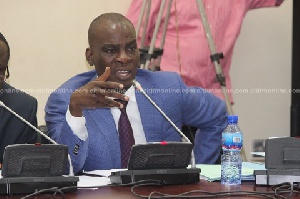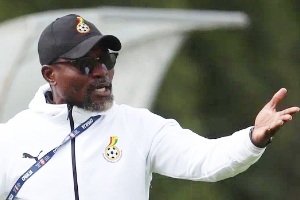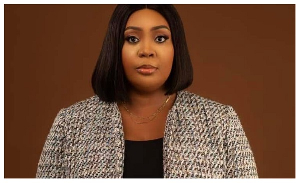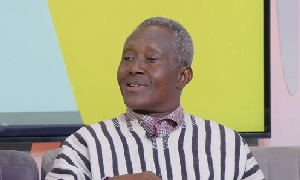The Member of Parliament (MP) for Tamale South and Minority Leader in Parliament, Haruna Iddrisu, has stated that the public should not expect the Appointments Committee to ask Members of Parliament nominated for a ministerial post, and a non-MP who has also been nominated for a ministerial post, the same questions.
He said, per Article 94 of the 1991 Constitution, every MP qualifies to be nominated as a minister or deputy, and that that alone answers most of the questions they would have asked them. In case of a non-MP, they have to deeper further to get more information, because he or she does not come under the said article 94.
Haruna Iddrisu, who is also a Ranking Member on the Haruna IddrisuAppointments Committee, made this assertion yesterday, as part of his contribution to seconding a motion for the House to adopt the seventh report of the Appointments Committee on the nomination of the Deputy Regional Ministers.
He supported the motion, while congratulating the appointees, and called on the House to approve the nomination by “consensus,” as the report had stated.
On the floor of the House yesterday, the First Deputy Speaker and Chairman on the Appointments Committee, Joseph Osei Owusu, moved that the House adopt the seventh report of the Appointments Committee on the nominations from the President as Deputy Regional Ministers.
In the report, Mr Amidu Chinnia Issahaku, who was nominated Deputy Upper West Regional Minister, spoke about the collapse of the cotton industry in the region.
He conceded that the cotton industry in the region had collapsed despite government’s efforts to revive it. He further indicated that job opportunities were very few in the region, and that the cotton industry was an important source of employment.
He noted that there was the need to revive the industry to create job opportunities in the region, while assuring his assistance to his Minister to liaise with the Ministry of Trade and Industry and Agriculture to come up with measures to revamp the cotton industry.
Also, Mr Adongo Frank Fuseini, Deputy Minister-designate for the Upper East, responding to the issue of economic potentials of some of the rocks in the region, as captured in the Committee’s report, said though attempts are being made to harness mineral resources from such rocks, illegal mining, commonly known as ‘galamsey’, is rearing its ugly head in some of the towns in the region, especially Nagori, where such economic rocks exist.
He, however, assured the Committee that he will support the Minister to solicit the support of other MPs, district chief executives (DCEs) and the security agencies to combat the menace, since it is a threat to national security.
The Deputy Central Regional Minster, Mr Thomas Yaw Adjei-Baffoe, speaking on the management of premix fuel, advocated for an all hands-on-deck approach, and intimated that he would closely work with the parliamentarians to ensure the efficient management of premix fuel in the region.
According to him, poor management of the product may affect the political fortunes of MPs, and hence the need to involve them in all decisions relating to the management of premix fuel.
Furthermore, the Deputy Volta Regional Minister, Mr Maxwell Quophy Blagodzi, on the creation of a new region out of the Volta, stated that the proposal in the NPP’s 2016 manifesto came from the people of the area, through their chiefs.
He continued that they would do their best to give the people what they wanted, but would sensitise the people on the possible advantages that would come with the creation of the new region, known as the Volta North or Oti Region, for them to get the maximum benefit.
On the part of the Deputy Minister for the Eastern Region, he said the activities of political vigilante groups are illegal, and should not be entertained in any form.
He was responding to a question on what actions he intended to take to control the activities of political vigilante groups in the Eastern Region. He said he will assist his Minister, and with support from the security services, clamp down on the activities of those groups in the region.
Mr Evans Opoku Bobie, Deputy Minister for the Brong Ahafo Region, when asked on the specific interventions he would introduce to help grow agriculture in the region, said the participation of the youth was vital in any effort to sustain the image of the Brong Ahafo Region as the hub of agriculture in Ghana. The then nominee expressed his readiness to assist the youth go into agriculture.
Meanwhile, Mad. Elizabeth Agyeman, who deputises the Ashanti Regional Minister, commenting on what she would do to address illegal mining (galamsey) and the pollution of water bodies in the region, stated that the issue of illegal mining was one of a national issue, and that the government was working on it.
She added that whatever policies government rolled out would be supported by her and the Regional Minister to ensure successful implementation.
Also, Mad Gifty Eugenia Kusi, Deputy Minister for Western Region, confirmed that a lot of women were engaged in galamsey (illegal mining).
She was of the view that most of these women undertake galamsey in order to make ends meet, citing that if these women are gainfully employed, most of them would not be in this illegal mining activity. She said, as Deputy Minister, she would liaise with her Minister to address the issue.
Deputy Greater Accra Regional Minister Mad. Elizabeth Kwatsoe Tawiah Sackey stated that she is aware of the growing vehicular congestion in the country, largely in the Greater Accra Region.
She accordingly promised to discuss the issue with the Regional Minister, to adopt the appropriate strategies and collaborate with the relevant authorities in the region to address the situation.
In responding to how to prevent the unreliable flow of water in the Northern Region, the Deputy Minister, Mr Solomon Namliit Boar, said he would assist the Minister to alleviate the situation.
He also told the Committee that he would leverage support from other non-governmental organisations (NGOs) in the north in the provision of boreholes.
General News of Wednesday, 22 March 2017
Source: thechronicle.com.gh

















